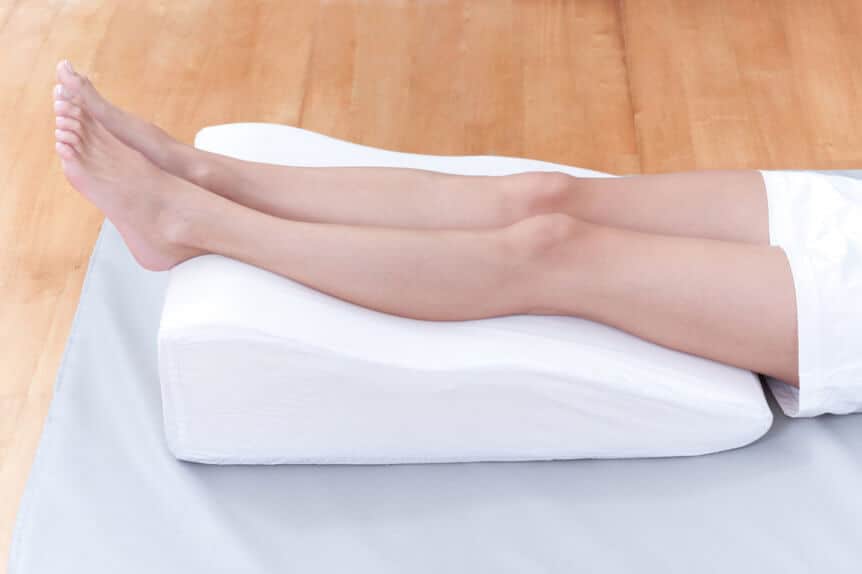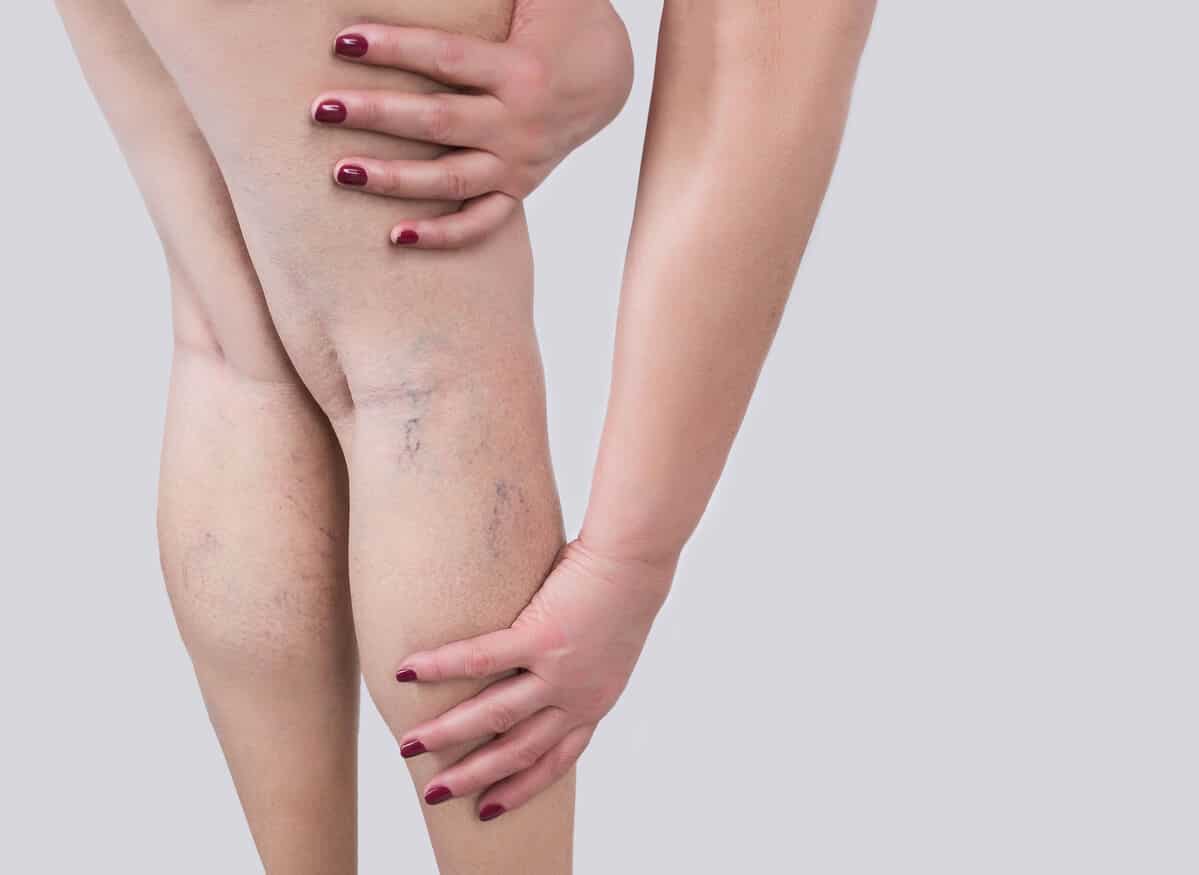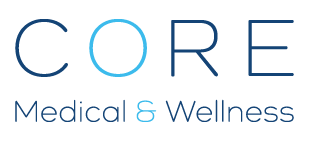
14 Most Common Questions About Laser Vein Treatment
Share this Post
At CORE Medical & Wellness, we see patients everyday with varicose vein leg pain. Many of them are researching the different options for treatment and they want to know why they should choose varicose vein laser vein treatment over all the other solutions out there. Does it really work? Or is it just hype?
We get so many questions from patients about our laser varicose vein treatments that we’ve decided to compile some of the most common ones here to help you do your research from the comfort of home. Of course, the best way to know if laser vein treatment is right for you is to schedule a visit with us, but in the meantime, here’s what you need to know.
Do I have spider veins or varicose veins?
These two types of problem veins are sometimes lumped together, but they're actually very different. While spider veins and varicose veins are both ultimately caused by poor circulation, spider veins are smaller and more superficial. They're closer to the surface of the skin and rarely cause anything more than aesthetic issues. Spider veins can be red, blue, or purple and have a webbed appearance, hence the name. You may find them everywhere from your face to your feet.
Varicose veins located deeper in the body, typically in the legs. They have a twisted, rope-like appearance. Some patients experience no physical symptoms with varicose veins, while others may have a great deal of discomfort. Symptoms of varicose veins include:
- Aching and pain, especially after physical activity
- A feeling of heaviness or tiredness
- Increased cramping
- Burning, tingling or itching around the veins
- Swelling and throbbing
- Tenderness
Varicose vein leg pain can impact a patient’s quality of life, making everyday activities difficult. Even when pain isn’t involved, many people with varicose veins experience self-consciousness and embarrassment when wearing shorts, skirts, or swimsuits and this alone prompts them to undergo treatment.
What if I choose not to treat my varicose veins?
Many people decide not to pursue varicose vein laser treatment or other therapy options. When varicose veins aren't impacting a patient's quality of life, it's absolutely understandable why they would opt to delay treatment or forego it altogether. That said, when you delay treatment for varicose veins, you're putting yourself at higher risk for more serious complications. These include:
- Inflammation
- Blood clots, including deep vein thrombosis
- Hyperpigmentation
- Ankle sores or skin ulcers
- Bleeding
This is why we recommend vein treatment to all of our patients. The good news is that the laser treatment we use for varicose veins is effective, virtually painless, and has very little downtime after the procedure.
Is laser treatment as effective as vein stripping?
Vein stripping used to be the gold standard for treating varicose veins. Now, endovenous laser treatment is increasing in popularity. We have chosen to offer laser treatment for varicose veins at CORE Medical & Wellness because it is just as effective as vein stripping, but with these key benefits:
- Less swelling
- Less bruising
- Treatment can be done under local anesthesia
In the study cited above, patients underwent vein stripping surgery in one leg and endovenous laser treatment in the other; two months after the procedures, 70% of patients indicated that they were happier with the laser procedure than they were with the vein stripping.
How much does laser vein treatment cost?
We can't tell you how much your laser vein treatment will cost until we see you in person to examine your veins. Every patient is different and your treatment plan will be customized to your specific needs and goals.
Will insurance pay for vein treatment?
Insurance rarely, if ever, covers the cost of treating spider veins since they are almost always superficial and do not impact a patient's overall health or quality of life. Varicose veins are different. They can cause discomfort in the short term and in the long term, they can put you at an elevated risk for more serious complications. Because of this, many insurance plans will cover treatment.
Our billing coordinator will submit a claim for treatment to your insurance carrier, but it is best to check your insurance plan first to confirm that laser vein treatment is covered. Your insurance company may want documentation of your varicose vein leg pain and they may also verify that you have tried non-invasive treatments before undergoing laser treatment.
What happens during laser vein treatment?
We understand that you may be nervous before undergoing varicose vein laser treatment or removal surgery, but knowing what happens from start to finish usually puts our patients’ minds at ease. So here's what you can expect:
- We will start by using a Doppler ultrasound device to map your vein. Knowing exactly what we're working with eliminates any trial-and-error and makes the laser treatment process quick and effective.
- Next, we'll apply a local anesthetic to numb the area we're working on to make sure you are comfortable throughout the procedure.
- A thin laser fiber is inserted through a tiny entry point into your vein. We deliver a pulse of laser energy to seal the vein and cut off its blood supply.
- The fiber is removed and a small bandage is put in place––no stitches are needed.
That's it! Treatment is usually done in under 2 hours.
Where do you perform laser vein treatment?
There's no hospital stay needed. We perform all laser vein treatments right in our clinic at CORE Medical & Wellness.

Is laser treatment really pain-free?
We like to think of the treatment as free of pain, but not necessarily free of discomfort. The anesthetic we use should take care of any pain during the procedure, although you could feel some minor tingling or stinging. After the procedure, you may have some soreness and bruising for up to five days, but over-the-counter pain relievers are usually enough to take the edge off.
How much time will I need off of work?
We don't know if you'll consider this good news or bad news, but most patients go back to work the same day as the procedure. We encourage walking immediately after your varicose vein treatment. Workouts and rigorous physical activity can usually be resumed after a week or two.
What kind of aftercare is needed?
As mentioned above, in the week or so following the procedure, you'll want to avoid strenuous exercise. Instead, walk a few times a day for 10 to 20 minute stretches. Long periods of standing, sitting, or lying down are discouraged. When you can, keep your legs elevated. If your legs are feeling swollen or sore, ice packs applied for no longer than 15 minutes at a time can help.
Wearing compression stockings will help keep veins compressed post-treatment to stop swelling and prevent the formation of blood clots. Depending on the severity of your varicose veins, we may ask you to wear these stockings for a few weeks after your procedure.
Are there possible complications from laser vein treatment?
As with any laser treatment, there's a risk of burns, scars, and infection. Our clinic adheres to the best practices outlined by the American Society of Laser Medicine and Surgery to minimize risk to our patients. Most complications of varicose vein removal surgery are minor, including temporary nerve damage and skin discoloration.
Serious complications are rare. If you have signs of infection, including redness or warmth, a sudden increase in swelling, or uncontrollable pain, call us right away.
Will I need multiple treatments?
It depends. If you have a large number of varicose veins that need treatment, you may need to have multiple treatments. When more than one treatment is needed, we space them about a month apart.
So, if you're closing off veins during the procedure, how does that impact my cardiovascular health?
This is a question we get a lot. Patients want to know where their blood will go now that the treated veins are out of commission.
First, remember that those veins weren't doing the job in the first place. Blood was pooling in them, which is why they appeared thick, knotted, and discolored. While blood flowed through them, it wasn’t flowing efficiently. When we cut these veins off from the rest of your blood supply, your body transports blood through your remaining healthy veins instead. This increases your circulation, which is why patients’ varicose vein leg pain goes away after getting laser vein treatment.
Is laser varicose vein treatment permanent?
Varicose veins are a symptom of circulatory problems or venous insufficiency. When we treat varicose veins, we're treating a symptom, not the underlying cause. Unfortunately, many risk factors for varicose veins are out of our control––these include age, sex, and genetics. We can make lifestyle changes that lower our risk of getting varicose veins again in the future, but sometimes there's simply nothing we can do to stop them from forming again in different areas.
Make an Appointment with Our Board-Certified Physician
Are you suffering from varicose vein leg pain? We can help. CORE Medical & Wellness takes a whole-body approach to wellness. Dr. Kim will treat your varicose veins and help you make the lifestyle changes you need to prevent them from coming back. Schedule an appointment today to learn more about what makes CORE different.
Dr. Steven Kim received his B.A. in biochemistry from Cornell University, then completed his M.S. from Columbia University and his M.D. from the State University of New York Downstate Medical Center. Dr. Kim specializes in the treatment of varicose veins and vein disease. Read his full bio here.
